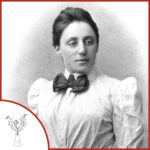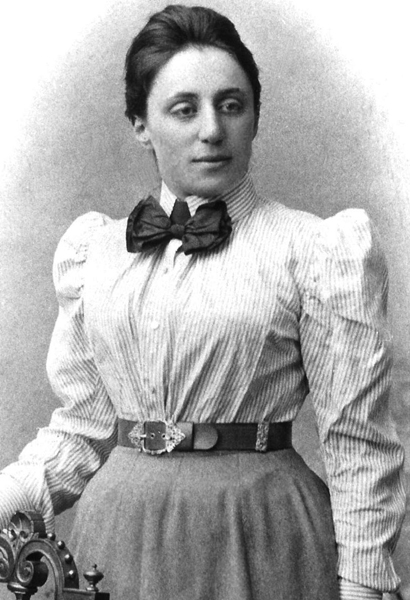

Birth: March 23, 1882
Death: April 14, 1935
Specialty: Algebra and theoretical physics
Major Contributions:
Founder of abstract algebra
Completing finishing school with a plan to teach French and English, as was expected of a woman of her station in the early 1900s, Amalie “Emmy” Noether decided that instead she would follow in her father’s footsteps and study mathematics.
She audited classes at the University of Erlangen, where she wasn’t allowed to officially pursue a degree because she was a woman. As soon as these gender-based restrictions were rescinded she enrolled as a student and earned her doctorate in mathematics in 1907. She spent the next eight years teaching at the university, in a completely unacknowledged capacity, holding no title or pay for tutoring students, teaching lectures, and supervising Ph.D. students.
While she didn’t receive compensation for her work, she was building a reputation as one of the leading mathematicians of the time, including publishing a half-dozen papers. When a team was being assembled at the University of Göttingen to work with Einstein’s general theory of relativity, Noether was their first pick. Einstein thought very highly of her work in creating the interlinked equations that were needed.
After the first World War, she was finally given a real position at the university, but again due to other’s ideas about the place of women in higher education she was given the title of “unofficial, extraordinary professor.” She wasn’t bothered by her mistreatment or the politics of the time, simply focusing on math.
Even when the rise of the Nazi party in Germany led to her being fired, she continued to tutor students illegally. In 1933 friends helped her obtain a temporary position at Bryn Mawr College in the United States with the hopes of moving on to a larger school. This wasn’t to be as she passed away due to surgical complications two short years later.
She is considered the founder of abstract algebra and in the realm of theoretical physics she is the creator of Noether’s theorem that explains the connections between symmetry and conservation laws. Her work has been called the backbone of all modern physics and at her passing Einstein wrote a letter to the New York Times stating, “Fraulein Noether was the most significant creative mathematical genius thus far produced since the higher education of women began.”
Written by Angela Goad
Sources:
Headstrong: 52 Women Who Changed Science – and the World by Rachel Swaby
Biographies of Women Mathematicians: Emmy Noether
Emmy Noether: Creative Mathematical Genius
See Also:
Emmy Noether Lectures (Association for Women in Mathematics)
Emmy Noether and the Fabric of Reality (YouTube)
Noether’s Theorem in a Nutshell
